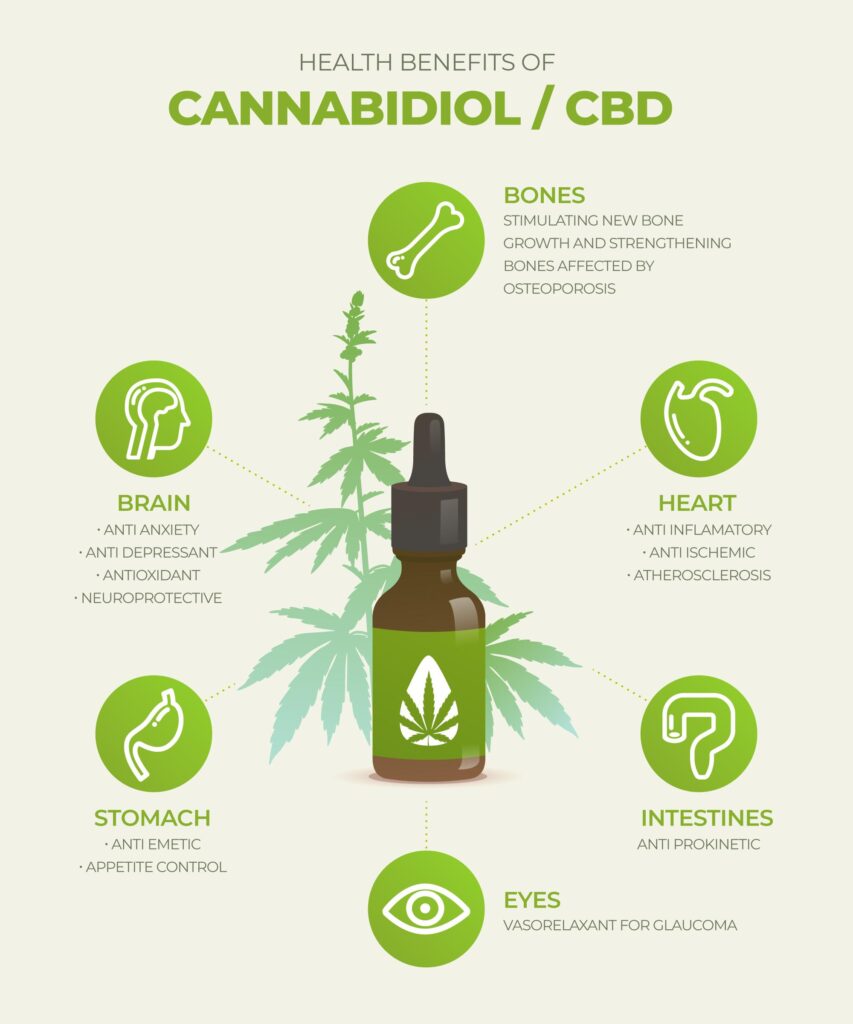Cannabidiol (CBD) and Tetrahydrocannabinol (THC) are the two most prominent and researched cannabinoids found in the cannabis plant, but they interact with the body in notably different ways, leading to different effects. Understanding the distinctions between CBD and THC is crucial for anyone looking to use cannabis products, whether for medicinal or recreational purposes.
Chemical Structure of CBD and THC
Although they share the same molecular formula, C21H30O2, and molecular mass, their atoms are arranged differently, which contributes to their distinct effects on the body. This slight variation in the arrangement of atoms makes all the difference in how they interact with cannabinoid receptors in the brain.
Psychoactive Components
- THC is the main psychoactive component of cannabis, which is what causes the “high” sensation associated with marijuana use. It binds with cannabinoid receptors in the brain, producing feelings of euphoria.
- CBD, on the other hand, is non-psychoactive. It does not produce a high because it does not bind in the same way to the cannabinoid receptors. In some cases, CBD can actually counteract the psychoactive effects of THC.
Medical Benefits of CBD and THC
Both have been shown to possess a variety of medicinal and therapeutic applications, but they are used to treat different symptoms and conditions.
- CBD is widely recognized for its potential to alleviate anxiety, depression, seizures, and pain without causing a high. It’s particularly noted for its use in treating certain forms of epilepsy.
- THC is used for its ability to relieve pain, nausea, and insomnia among other symptoms. However, due to its psychoactive properties, its use is more controversial in a medical context.

Legal Status
The legal status of CBD and THC varies significantly around the world and even within countries, especially in the United States.
- CBD derived from hemp (cannabis plants with less than 0.3% THC) is legal in many places where THC-rich cannabis is not. This is because CBD products are often seen as non-psychoactive substances.
- THC and marijuana containing it are regulated more strictly due to their psychoactive effects. However, many regions have legalized or decriminalized it for medical or recreational use.
Side Effects
While both CBD and THC are generally considered safe, they can cause side effects in some individuals.
- CBD side effects are usually mild and may include fatigue, diarrhea, and changes in appetite.
- THC can cause temporary side effects such as increased heart rate, coordination problems, dry mouth, red eyes, slower reaction times, memory loss, and anxiety.
Drug Testing
THC is the substance that most drug tests are designed to detect. CBD may not show up on a standard drug test, but since many CBD products contain trace amounts of THC, there’s a possibility of a positive test result, particularly with high doses of CBD oil.
Conclusion on CBD vs. THC
Understanding the differences between these two is crucial for making informed decisions about cannabis use. While both cannabinoids have unique and beneficial properties, their effects, legal status, and potential side effects differ significantly. Whether you’re interested in the therapeutic applications of CBD or the psychoactive effects of THC, it’s important to consider these differences when choosing cannabis products, and always adhere to the legal guidelines and regulations in your area.




